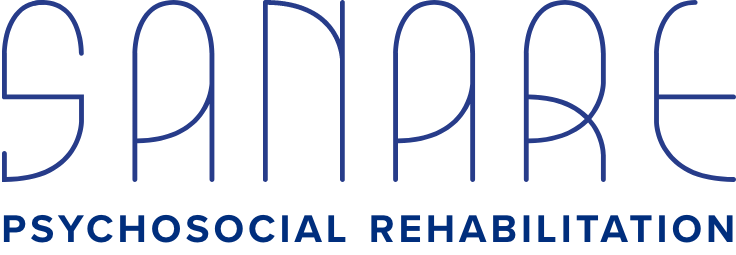How to Build Confidence and Motivation When You’re Struggling to Transition into Adulthood
If you or someone you know is struggling with a "failure to launch" phase—whether it’s a delay in achieving personal milestones, difficulty transitioning into adulthood, or an overall sense of being stuck—you're not alone. Many individuals go through periods in life when they feel uncertain, unmotivated, or overwhelmed by the idea of taking the next step. However, it’s important to remember that building confidence and reigniting motivation is entirely possible with the right strategies and support.
Here’s how you can start rebuilding your self-confidence and motivation, step by step:
1. Start Small: Break Big Goals into Manageable Steps
When you’re feeling stuck, large tasks or goals can seem insurmountable. The key is to break down bigger aspirations into smaller, more manageable actions. For example, if the thought of moving out or starting a career feels overwhelming, try focusing on one small action at a time:
Update your resume or LinkedIn profile
Apply to one job or internship
Research affordable housing options
Set up a meeting with a career counselor or therapist
By focusing on small wins, you’ll gradually build momentum, which will help you feel more capable and motivated.
2. Set Realistic Expectations and Celebrate Progress
It’s easy to get discouraged when your expectations are too high, especially if you're dealing with the weight of feeling “behind.” Instead of striving for perfection, aim for realistic progress. Every little step forward counts!
Acknowledge and celebrate your achievements, no matter how small they may seem. Whether it's a task you've checked off your to-do list or a difficult conversation you've had, recognizing your efforts boosts your self-esteem and reinforces positive behavior.
3. Address Negative Self-Talk and Replace It with Empowering Thoughts
When you’re struggling with motivation or confidence, negative self-talk can become a significant barrier. Thoughts like “I’ll never succeed” or “I’m not capable of change” can keep you stuck in a cycle of self-doubt.
To break this pattern, start identifying and challenging these thoughts. When you catch yourself thinking negatively, ask yourself:
Is this thought true?
What evidence do I have to support this belief?
What would I say to a friend going through the same thing?
Replace negative thoughts with positive affirmations or practical statements that affirm your strengths and potential. Over time, practicing this kind of self-compassion will gradually shift your mindset and help you feel more confident in your abilities.
4. Focus on Building a Support System
Having a strong support system is crucial when you're navigating the challenges of a "failure to launch" phase. Surround yourself with people who inspire, encourage, and hold you accountable. This might include family, friends, mentors, or even support groups of individuals going through similar experiences.
If you're struggling to find a support system, consider speaking to a mental health professional, like the team at Sanare Psychosocial Rehabilitation. Therapy can provide you with valuable tools to build confidence, improve self-awareness, and work through any underlying mental health concerns (like anxiety or depression) that might be hindering your growth.
5. Embrace a Growth Mindset
A growth mindset is the belief that abilities and intelligence can be developed through dedication and hard work. Adopting this mindset can help you view challenges as opportunities for growth rather than insurmountable obstacles. When you face setbacks or feel discouraged, remind yourself that mistakes and failures are part of the learning process and that each challenge is an opportunity to improve.
Embrace the idea that it's okay to take risks and learn from failures. They don’t define you; they are simply part of your journey toward growth and success.
6. Practice Self-Care and Prioritize Your Well-Being
When you’re feeling low or unmotivated, it can be easy to neglect your physical and emotional well-being. However, taking care of your body and mind is essential for building confidence and motivation.
Incorporate small self-care practices into your routine that support both physical and mental health. This could include:
Regular exercise or movement
Practicing mindfulness or meditation
Getting adequate sleep
Eating nutritious meals
Journaling or engaging in creative activities to express yourself
When you prioritize your well-being, you’ll feel more energized, focused, and capable of tackling the challenges ahead.
7. Take Action—Even When You Don’t Feel Ready
Often, the most challenging part of overcoming "failure to launch" is simply taking the first step. Waiting until you feel fully ready can keep you stuck in a cycle of inaction. Instead, commit to taking small actions, even when you feel uncertain or scared. Taking action builds confidence, and the more you do it, the easier it becomes.
Remember, you don’t have to have everything figured out right away. The process of learning, growing, and succeeding takes time—and that’s okay.
8. Consider Professional Support like Sanare to Help You Get Unstuck
If you find that self-help strategies aren't enough, or you feel overwhelmed by your lack of motivation or confidence, it may be helpful to speak with a professional. Psychosocial Rehabilitation allows you to have 1:1 support to follow through and implement all of the above strategies. Therapy or counseling can provide you with a safe space to explore the underlying reasons for your struggles and work through challenges in a structured way.
Therapists can help you uncover any emotional or psychological barriers that might be preventing you from launching into the next phase of your life, whether that’s due to past trauma, anxiety, or self-limiting beliefs. We at Sanare can be there to work with you directly to help you start to achieve your goals and gain more independence!
